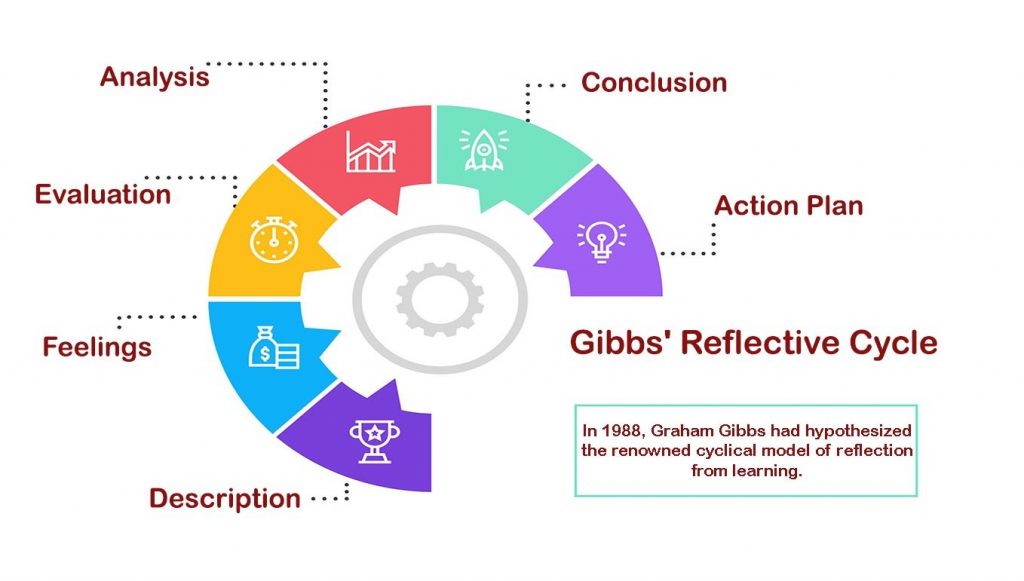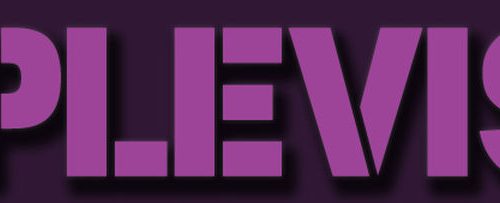“This time, Let me help you”

Gibbs’ Reflective Cycle was a helpful aid for teaching staff when reflecting on their feelings, thoughts, and actions related to challenging situations.
(Markkanen et al., 2020)
I work as a teaching assistant at a music institution. For the first few weeks, I just stayed with the students and acted as a “big student”. A few weeks later, our boss suggested that I contact the main teacher of each class to find out their course schedule. So I contacted the main course teacher and became familiar with the teaching ideas. Before I had time to try teaching, two things happened that bothered me.
I will use the Gibbs’ Reflective Cycle model to analyze the incident that made me feel frustrated. (The content framework of this article refers to a guidance article.(The University of Edinburgh, 2020))
Describe

Once the teacher of another class took a leave of absence, so I had the opportunity to see how the teaching assistants in other classes were effective in teaching. I saw her helping my main subject teacher draw staff and notes on the whiteboard, and saw her teaching students familiarity with music theory using the beat and key in a song. I sat among the students watching all this, and I also beat the time below and hummed the melody. I realized that it seemed like I could do what a teacher’s assistant did, and I could do it well.
A week later, I was suddenly told that I needed to lead a class alone, and teachers from other classes would take care of me. I contacted the teacher and asked her what I needed to prepare, and she told me not to worry, the teachers in other classes would take care of it. On that day, the teacher told me the teaching plan in class and asked me to help with teaching, but I refused her because I had no relevant experience before.
Feeling

I was very frustrated because I wasn’t able to help with teaching when the teacher was in class, and I couldn’t take on the task of teaching when the teacher was not in class.
When I had the opportunity to teach students independently, I voluntarily gave up the opportunity because I was afraid of making mistakes. When other teachers could take care of me and bear the consequences of my mistakes, I gave up this opportunity because I was afraid of delaying the students’ learning time. I am sorry for both the teacher and myself.
Evaluation

On the opposite side, I asked for help and got some opinions and suggestions. I solved the problem without causing trouble to others. The bad thing is that I didn’t try to help teachers teach, and I took the initiative to give up the opportunity to improve myself. I think I am making slow progress, but the speed of progress is too slow.
Analysis
Things went well because I chose the safest option in anticipation, rather than trying the option that might have risk and reward. Things went wrong because I desided to ask the teacher for help when I had the opportunity for try to teach.

I do know the teaching ideas and content. I think this happened because I was not confident enough to teach independently. On the one hand, I should have more courage to try teaching in the future. On the other hand, I should take the initiative to undertake part of the teaching content, and exercise my teaching ability and courage with the help of the teacher.
My boss and I have expressed my current troubles. She recommended a teaching book to me, and part of it says this:
“Children worry that their mistakes will lead to criticism, rejection or disapproval. So they often do their best to avoid putting themselves in a position that might invite such a reaction.”
“At this stage, accept and approve all offerings positively – and however poor they might be, always try to find something praiseworthy. it’s a matter of building their confidence. In time, their responses will gradually improve and we can become more challenging.”
(Harris, 2015)
Maybe the book is about teaching students to become more accepting of failure, and I think I can learn something from it: learn to accept your fear of failure, do it bravely and find the good part of it and praise yourself. In addition, if I can learn more teaching methods, will I have more confidence in facing the possible uncertainties in teaching? I believe so.
Conclusion
In this incident, I realized that the fear of failure was a big problem in my life. I should be more brave, such as trying to teach in the classroom, such as seeking more opportunities to exercise courage in life. In this way, even if you encounter an emergency, you will have more capital to deal with it calmly.
For everyone involved, if I hadn’t been afraid of failure before but had been more active in getting acquainted with how to teach, then when I have the opportunity to teach alone, I can also take on the tasks assigned to me by the teacher.
For the future, I need to read more teaching materials to expand my thinking on teaching. In this way, when the next challenge arrives, I can face it more calmly.

Action Plan

If I face the same situation in the future, even if I am still afraid of failure, I will ask the teacher about the teaching plan in advance and prepare the corresponding teaching plan in advance. When the teacher asks for my help in teaching, try to do it first. If it fails, then ask the teacher how to improve. In this kind of teaching process, students and students may be each other’s teachers and make progress together.
When I encounter those low-risk situations in my life, although I need to break through myself, but there will be someone to help me guide me, I will actively seek self-breakthrough, to exercise my skills and courage. I realized that as long as I raised my guts and I was ready to try teaching, I believe that if the next challenge comes, I will say:
Bibliography
Harris, P. (2015). The virtuoso teacher : the inspirational guide for instrumental and singing teachers. London: Faber Music.
Markkanen, P., Välimäki, M., Anttila, M. and Kuuskorpi, M. (2020). A Reflective cycle: Understanding Challenging Situations in a School Setting. Educational Research, [online] 62(1), pp.46–62. doi:10.1080/00131881.2020.1711790.
The University of Edinburgh (2020). Gibbs’ Reflective Cycle. [online] The University of Edinburgh. Available at: https://www.ed.ac.uk/reflection/reflectors-toolkit/reflecting-on-experience/gibbs-reflective-cycle.
You May Also Like

Securing My Placement: The Humbling Experience of Film Industry Rejection
24 November 2022
Securing a Placement: An Observation in Timing and Luck
25 November 2022
